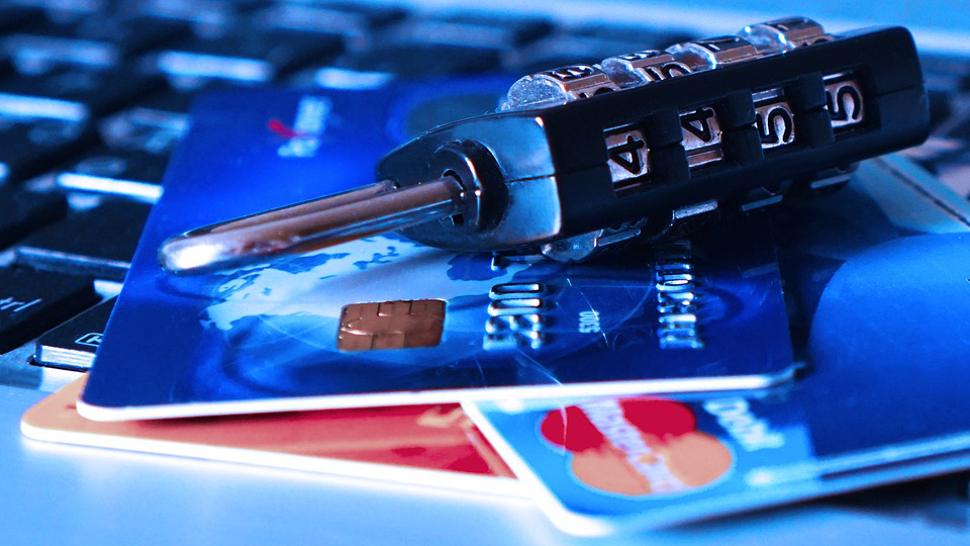The truth about identity theft protection and credit monitoring: do they really work?
Protecting your online identity can be costly, but the consequences of not doing so are much worse

Identity theft is a growing concern for everyone, as it can cause serious financial and emotional damage. Companies that offer identity theft protection and credit monitoring services claim to safeguard your identity and credit score by constantly monitoring your personal information and alerting you to any suspicious activity. These services can be expensive, and it's important to understand whether they're worth the investment.
While they can certainly provide an added layer of protection, it's important to note that no service can guarantee 100% protection against identity theft. Additionally, there are many steps you can take on your own to protect your identity, such as monitoring your credit reports regularly, being cautious of phishing scams, and creating strong passwords for all of your accounts. Ultimately, it's up to each individual to decide whether the cost of identity theft protection is worth the peace of mind it provides.
A TechRadar Choice for Best Identity Theft Protection Aura is an excellent choice thanks to its user friendly interface, antivirus service and detailed reporting dashboard. Save up to 50% with a special Techradar discount.
What is identity theft protection?
Identity theft protection is a service from financial companies that is designed to protect your ID from theft, thereby avoiding the inevitable fraud that follows.
They typically offer three things:
- Monitoring: your credit files are monitored for changes.
- Alerts: you receive notification of new accounts opened in your name or unusual spending.
- Recovery: identity theft protection comes with an insurance element covering the recovery of lost bank and card balances and the impact of other fraudulent activity in your name.
You may receive regular emails about identity theft and other privacy-related news if you sign up for a protection service.
Who offers credit monitoring?
If you have decided to pay for credit monitoring, you have several options. As identity theft has increased in recent years, the number of protection solutions has grown.
Where you're based determines what credit monitoring solutions are available to you.
Sign up to the TechRadar Pro newsletter to get all the top news, opinion, features and guidance your business needs to succeed!
For example, if you're in the US, Norton LifeLock, ID Watchdog, and Identity Force offer comprehensive paid services with various coverage options, with monthly and annual subscriptions to match.
Need something less extensive? Credit Karma is a free service that checks for changes to Equifax and TransUnion reports. This service will send alerts and recommend financial products based on your credit details. As such, it's an all-in-one credit care tool.
Credit monitoring from Credit Karma is also available in the UK.

Downsides of identity theft protection
The identity theft protection service you choose primarily depends on your expectations and budget.
Sadly, while all the big names promise much, they have too many differences. ID Watchdog's premium protection offers fewer services than IdentityForce, so it pays to research which product is most suitable for you. For example, IdentityForce UltraSecure+Credit and LifeLock Ultimate Plus offer family plans, whereas ID Watchdog doesn't.
Then there's the issue of trust, reliability, and transparency.
For example, while Lifelock Ultimate Plus insurance is designed to reduce public exposure of your details, monitor the Dark Web for your data, and protect stolen funds, it is not without issue. Recent data breaches at LifeLock and Equifax might leave you wondering if they can be trusted.
Finally, these services offer their products at different price points.
How does credit monitoring work?
Credit monitoring is an essential part of ID theft protection services. It involves monitoring your credit record for any changes and informing you via alerts if there are any unexpected activities. The basic idea of credit monitoring is to keep track of your credit file using data from all available credit agencies. Some companies also offer additional features such as checking if medical care is being received in your name and various insurance protection levels. Notifications can be sent via email or SMS. However, it's important to note that credit monitoring is essentially a paid service that allows you to have your credit record checked. You can still monitor your credit record, so you may want to consider whether or not you need to pay for credit monitoring.
You can protect your identity for free
While paid solutions seem increasingly common, you may prefer to protect your identity for free. Several free-to-use tools and services let you monitor your credit and protect your ID for no more than the cost of your internet connection.
- Track changes to your credit score: card issuers and some personal finance websites (e.g., Credit Karma) can help you keep an eye on your credit report for free.
- Report identity theft: government and financial institutions already provide free reporting tools, so there is no need to pay for this service.
- Freeze your credit file: perhaps the most valuable tool against identity fraud; you should keep your credit file frozen when you're not applying for credit.
Does credit monitoring work?
Identity theft is a common problem these days, and credit monitoring is one way to keep an eye on your credit status and reduce the risk of identity fraud. However, it's important to note that credit monitoring works only if you actively pay attention to your financial situation and regularly check your credit file. It's crucial to read the alerts sent by credit monitoring services and take the necessary actions to prevent identity theft.
When it comes to choosing an identity theft protection company, it's essential to do your research thoroughly to ensure that the company provides reliable and effective services. It's recommended to check reviews of the service to see if it meets your requirements in practice. Ultimately, the effectiveness of identity theft protection depends on the quality of the service provider.

Should you pay for identity theft protection and credit monitoring?
Can you afford the monthly outlay for credit monitoring? Protection seems a good idea if you're concerned about identity theft, but is the risk real? Is it worth paying to avoid it? And can paying to stop identity theft stop it from happening?
Identity theft protection services are primarily affordable and can give you good results. But there isn't a solid reason to pay for a service replicating most things you can do for free.
Ultimately, if you're happy to pay and can afford it, then it won't hurt. However, it's fair to say that subscription identity theft protection and credit monitoring are little more than digital placebos. You can get better results for free with SMS alerts, improved awareness and vigilance, and better security practices.
More from TechRadar Pro
- We've rounded up the best secure drives around
- Protect your online privacy with one of the best VPN services
- These are the best shredders available
- We've also highlighted the best identity theft protection
Christian Cawley has extensive experience as a writer and editor in consumer electronics, IT and entertainment media. He has contributed to TechRadar since 2017 and has been published in Computer Weekly, Linux Format, ComputerActive, and other publications. Formerly the editor responsible for Linux, Security, Programming, and DIY at MakeUseOf.com, Christian previously worked as a desktop and software support specialist in the public and private sectors.

